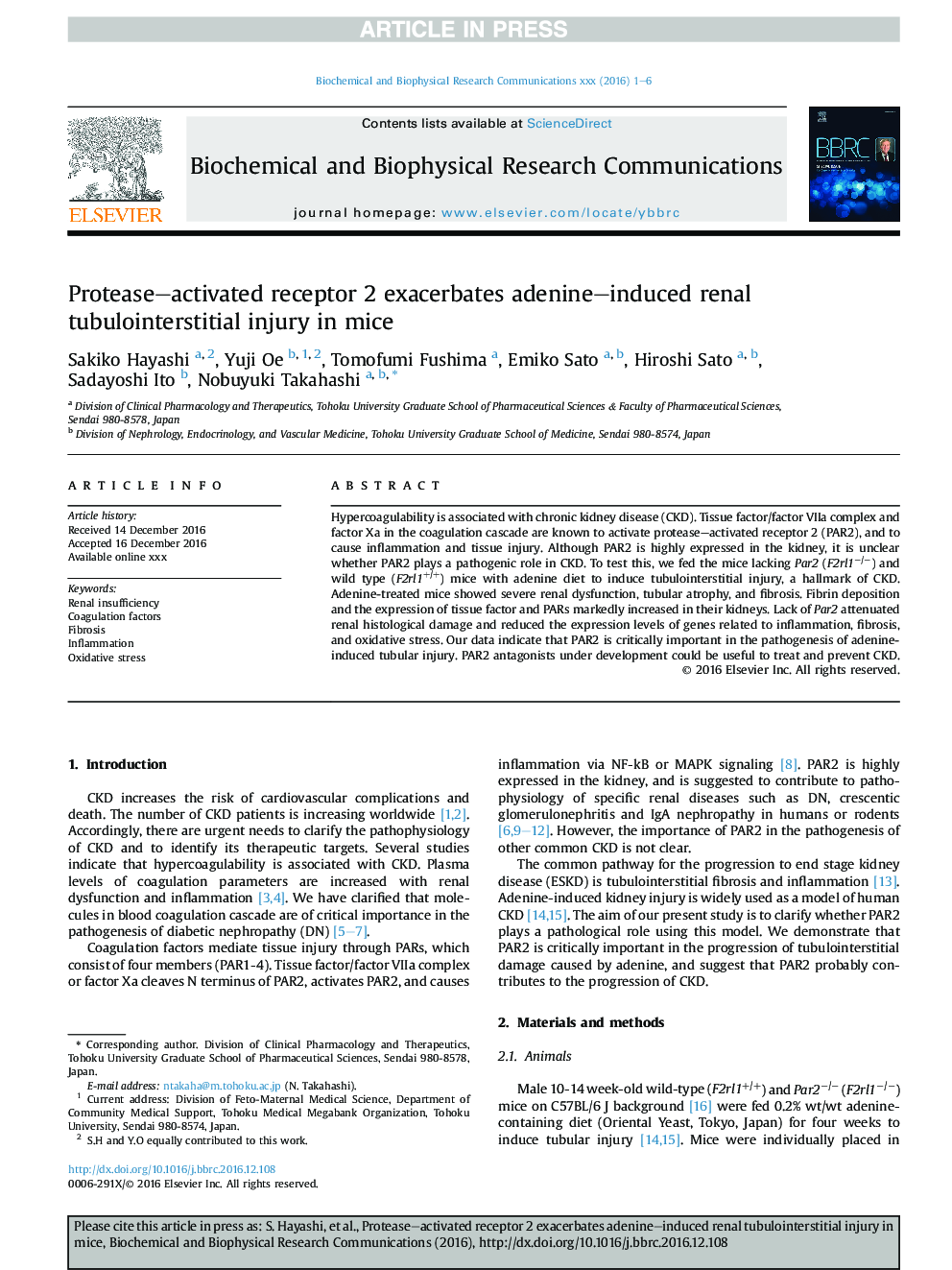| Article ID | Journal | Published Year | Pages | File Type |
|---|---|---|---|---|
| 5505631 | Biochemical and Biophysical Research Communications | 2017 | 6 Pages |
Abstract
Hypercoagulability is associated with chronic kidney disease (CKD). Tissue factor/factor VIIa complex and factor Xa in the coagulation cascade are known to activate protease-activated receptor 2 (PAR2), and to cause inflammation and tissue injury. Although PAR2 is highly expressed in the kidney, it is unclear whether PAR2 plays a pathogenic role in CKD. To test this, we fed the mice lacking Par2 (F2rl1â/â) and wild type (F2rl1+/+) mice with adenine diet to induce tubulointerstitial injury, a hallmark of CKD. Adenine-treated mice showed severe renal dysfunction, tubular atrophy, and fibrosis. Fibrin deposition and the expression of tissue factor and PARs markedly increased in their kidneys. Lack of Par2 attenuated renal histological damage and reduced the expression levels of genes related to inflammation, fibrosis, and oxidative stress. Our data indicate that PAR2 is critically important in the pathogenesis of adenine-induced tubular injury. PAR2 antagonists under development could be useful to treat and prevent CKD.
Related Topics
Life Sciences
Biochemistry, Genetics and Molecular Biology
Biochemistry
Authors
Sakiko Hayashi, Yuji Oe, Tomofumi Fushima, Emiko Sato, Hiroshi Sato, Sadayoshi Ito, Nobuyuki Takahashi,
